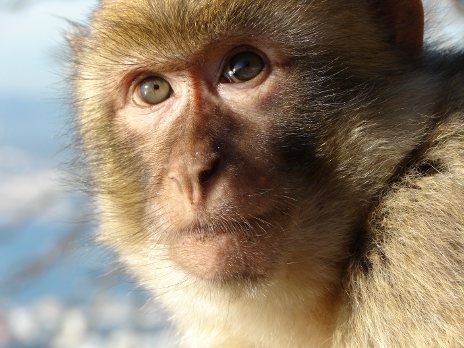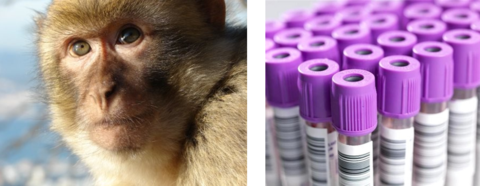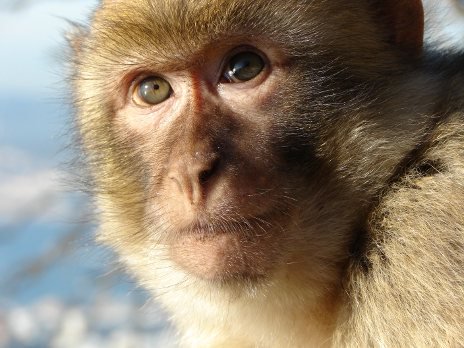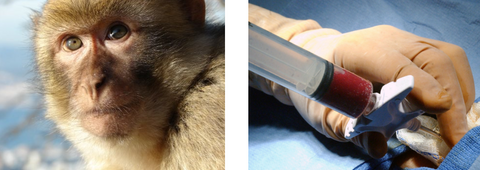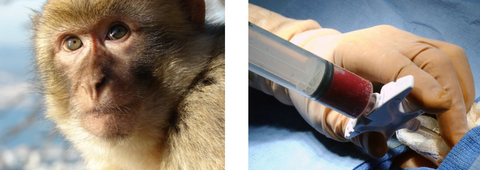Non-human Primate (Cynomolgus) CD3+ Pan T Cells
Non-human Primates (NHP) are the closest phylogenic relatives to man. In biomedical research, they are often indispensable. Cynomolgus monkey is a well-known NHP species widely used in various types of research, including toxicological, pharmacological, metabolic, physiological and psychological studies. These monkeys are originated from different areas of Southeast Asia and are now purpose-bred in a limited number of breeding centers in different geographical locations. Generally, the life span of a Cynomolgus monkey is 25-30 years. 19-31 months old Cynomolgus monkeys are considered juveniles with no sexual dimorphism and those of 32-44 months are considered adolescent (not sexually mature). Their sexual maturity is achieved in four years of age for females and six years for males. Cynomolgus monkeys demonstrate age-related conditions which are commonly observed in humans, such as cardiovascular disease, Alzheimer's disease, bone loss, knee osteoarthritis, obesity, diabetes and diabetic complications. The Cynomolgus monkeys are also widely used as animal models for allo- or xeno-transplantation.
Most T cell lineages express surface protein CD3, which is made of invariant subchains belonging to the immunoglobulin superfamily. CD3 is a multimeric protein complex, which is composed of four distinct chains (CD3g, CD3d and two CD3e). CD3 on the cell surface associated with the T-cell antigen receptor (TCR) functions in the signaling transduction cascade that originates when a peptide - MHC ligand binds to the TCR.
These T cells can be subdivided further into NK cells, CD8+ cytotoxic T cells and CD4+ helper T cells. T cells are used to perform research in immunology as well as oncology and infectious diseases.
Our Non Human Primate CD3+ Pan T Cells are isolated from Non Human Primate mononuclear cells by negative selection. All Non-Human Primate whole blood is collected by venipuncture from animals housed within the United States.

Related Products:






